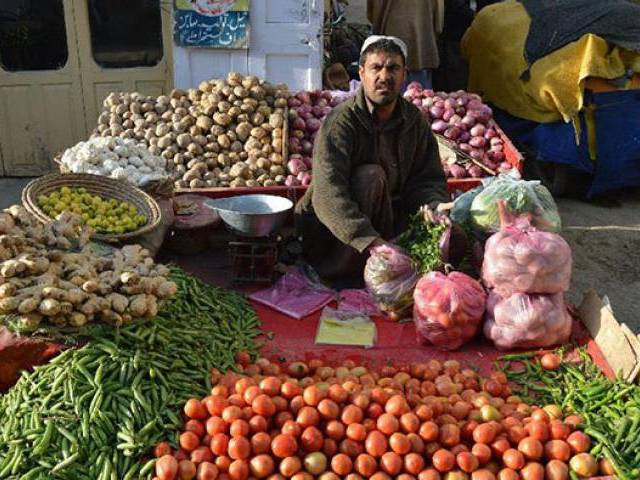Consumer price index: Inflation rate stays at 3.7%
However, market expectations of uptick in prices have increased

PHOTO:FILE
However, despite subdued prices, market forces are now expecting an uptick in inflation, resulting in an increase in the government’s borrowing cost. Due to upward adjustment in the yield on Pakistan Investment Bonds, the Finance Ministry has had to increase, for the first time in four months, the interest rates on various saving instruments being offered by the National Saving Directorate.
November Consumer Price Index: Inflation rate falls to 3.8% from previous month’s 4.2%
The yield on regular income certificate increased by 18 basis points to 6.54%, on special saving certificates by 20 basis points to 6% and on defense saving certificates by 10 basis points to 7.54%. Overall, the increase was in the range of 1.34% to 3.44%.
The government did not change the interest rates on pension and Behbood saving instruments, which are already offering a return of 9.36%.
The annual inflation rate measured by the Consumer Price Index (CPI), which captures prices of 481 commodities in urban centres, clocked in at 3.7% in January compared with the same month of the previous year, reported the PBS. It was the second consecutive month that the annual inflation rate remained at 3.7%.
Inflation rises 3.9% in Sept on back of increase in food prices
In an anticipation of increase in rates, commercial banks have stopped investing in the government’s long-term Pakistan Investment Bonds (PIBs), forcing the Finance Ministry to start relying on six-month market treasury bills to raise funds for budget financing.
The yield on PIBs is increasing due to market’s expectations of rupee devaluation and fiscal slippages in the pre-election year, said Khurram Schehzad, the chief commercial officer at JS Global Capital. He said that due to expected fiscal slippages, the government’s borrowing requirements would increase and the investors wanted to cash the opportunity.
Schehzad said the SBP’s decision to keep the key policy rate unchanged would ensure price stability in the market. The State Bank of Pakistan in its latest Monetary Policy announcement kept the key policy rate unchanged at 5.75%.
Constant inflation reasoning
The main reason behind a constant inflation rate was reduction in prices of both perishable and non-perishable food items. It was the third consecutive month the pace of annual inflation slowed after increasing for five straight months.
However, after the government started increasing fuel prices, the monthly inflation rate became positive in January after deflationary trends in the previous month.
Soaring prices: Core inflation touches 19-month high at 5.2%
The core inflation -measured by excluding energy and food items - again started picking momentum and was registered at 5.4% last month, showed PBS data.
In January, the average sugar prices increased by Rs1.12 per kilogramme to Rs64.80, reflecting the impact of the government’s decision to allow export of sugar, according to the PBS.
In December, the Economic Coordination Committee (ECC) of the Cabinet allowed the export of 225,000 tons while ignoring serious objections raised by some ministers over the adverse impacts of the decision on domestic consumers.
Economic boost: Eurozone inflation jumps to three-year high
These members of the ECC were of the view that due to the earlier decision to allow the export of sugar, prices of the commodity significantly increased, said sources in the finance ministry. They also argued that the government could not play its role to check the prices.
The ECC had directed the Commerce Ministry to monitor sugar prices and bring the issue to the committee’s notice if there was an upward movement.
The PBS reported that in January sugar prices increased by 3.1% while the average increase in sugar prices during the last one year was 8.5%.
FY16: Average inflation clocks in lower than expected at 2.86%
In the last one month, the average prices of drugs and medicines also increased 13%, which went unnoticed. During the past one year drug and medicine prices increased almost 23%, nullifying the claims of the drug manufacturers that the government has not increased prices.
The average inflation during the first seven months of the fiscal year (July-January) remained at 3.9%, according to the PBS. For fiscal year 2016-17, the government has set the inflation target at 6% while the IMF and SBP projections are below the target level.



















COMMENTS
Comments are moderated and generally will be posted if they are on-topic and not abusive.
For more information, please see our Comments FAQ